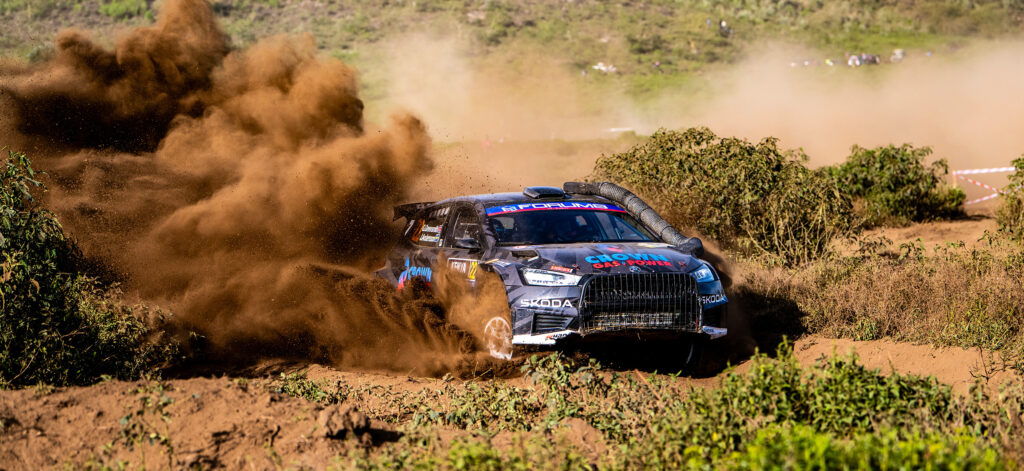The second half of this year's World Rally Championship (WRC) season gets underway on Estonia's fast and technical tracks. A country where rallying is a very popular sport is looking forward to round 7 of the world championship and it is no wonder that this event is billed as the biggest motorsport event in the whole of the Baltics.
The history of the Estonian rally is not very long, as it dates back "only" to 2010. However, in 2014 it was already included in the European Rally Championship calendar, of which it was part until 2016. Due to the similar nature of the course, the event has been used frequently by many teams in preparation for Rally Finland (WRC) and in 2019 the organisers of the event have seen it included as a WRC event. Last year, for the first time, Rally Estonia became part of the world championship and also restarted last year's edition after a break caused by the pandemic situation in the world.
This year's event will feature 12 crews with ŠKODA FABIA Rally2 and Rally2 evo cars, making ŠKODA once again the most represented brand in the Rally2 class. Of course, the WRC2 category points leader Andreas Mikkelsen and co-driver Ola Fløen are among the 12 crews. Their goal is mainly to increase this point lead and break the setbacks that have accompanied them in previous events. Their ŠKODA Motorsport-supported Toksport WRT teammates Marco Bulacia and Marcelo Der Ohannesian are in third place in the category thanks to their previous consistent performances. The Polish crew of Kajetan Kajetanowicz/Maciej Szczepaniak also have high ambitions in the WRC3 category. Their aim is to take their third win of the season and reduce the points lead of the category's current leader. There is no shortage of competition, however, and other crews with ŠKODA FABIA Rally2 evo cars, such as Raul Jeets/Andrus Toom, Mikko Heikkilä/Topi Luhtinen, Emil Lindholm/Reeta Hämäläinen and Alexey Lukyanuk/Jaroslav Fedorov, will also be competing for the top positions.
Rally Estonia will kick off on Thursday 15 July with a ceremonial start in Raadi, followed by the spectacular Tartu stage near the service park. On the second day, the crews will tackle 130 km of special stages in the south of Estonia, divided into 8 special stages. Although the names are very similar to last year, the courses have been changed and the crews have to prepare their pacenotes carefully from the beginning. However, what is completely new are all four of Saturday's stages, which the cars will take on in both the morning and afternoon sessions. Saturday's 132km will then be rounded off in the evening by the Tartu stage, in the same format as Thursday. The final 54 km, divided into six stages, will be completed on Sunday and the rally will end with the Power Stage.
A characteristic feature of Estonian gravel is its speed, but at the same time its technical difficulty. The tracks are full of narrow forest passages, where there is no room for the slightest inaccuracy in the pacenotes. There are also many fast jumps, during which the car is in the air for quite a long time. So there is definitely something to look forward to and it is no wonder that this competition is the highlight of the motoring season in the whole of the Baltics.
We will be informing you about the latest news from the rally on the ŠKODA Motorsport social media.








